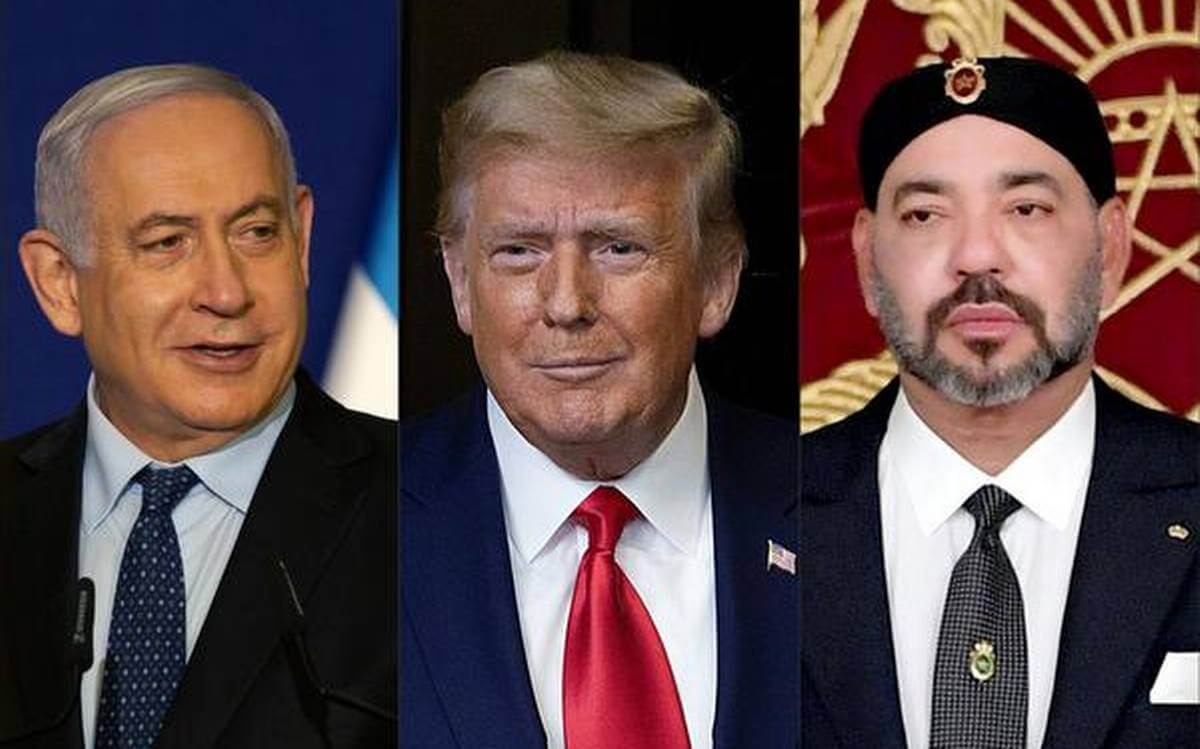On Thursday, Morocco became the sixth Arab League member to establish full diplomatic relations with Israel, in a deal brokered with the help of the United States (US). Israel’s Prime Minister, Benjamin Netanyahu, welcomed the agreement with Moroccan King Mohammed VI, calling it “another great light of peace.” Meanwhile, US President Donald Trump took to Twitter to hail the “historic” and “massive breakthrough”.
Another HISTORIC breakthrough today! Our two GREAT friends Israel and the Kingdom of Morocco have agreed to full diplomatic relations – a massive breakthrough for peace in the Middle East!
— Donald J. Trump (@realDonaldTrump) December 10, 2020
Morocco’s royal court confirmed the immediate reopening of embassies in Tel Aviv and Rabat, which were previously shut down in 2000 following the outbreak of the Palestinian uprising, popularly known as the second intifada. Previously, between 1993 and 2000, both countries enjoyed low-level ties after an Israeli-Palestinian peace deal was reached. The recent deal with Israel is partly the result of prolonged efforts by the US President’s senior adviser and son-in-law, Jared Kushner, and his chief international negotiator Avi Berkowitz, who reportedly visited Morocco on several occasions.
The primary reason behind Morocco’s motivation to normalize ties with Israel is a bargain with the US to recognize Rabat’s claim over the disputed Western Sahara region, where tensions between government forces and the separatists Sahrawi forces have escalated. In fact, the self-proclaimed Sahrawi Arab Democratic Republic’s (SADR) army, the Polisario Front, recently broke a 29-year-old ceasefire to declare war on Morocco and has been blocking a crucial border crossing.
For Morocco, the region represents a crucial economic foothold in terms of phosphate reserves, fisheries, and offshore oil. At the same time, the Guerguerat border crossing between the Western Sahara and Mauritania runs through a ‘buffer zone’ between Morocco and the SADR, demonstrating how the area also represents a crucial trade route to other African nations.
The Sahrawis, on the other hand, backed by Algeria, wish to formally establish their own fully self-governed, autonomous nation that is recognized by other international actors. While Morocco has offered to provide autonomy to the SADR, this deal has been rejected by the Sahrawis, who wish to attain full sovereignty.
In 1975, as African states continued the scramble to define their borders after colonial power Spain withdrew from the region, Morocco claimed virtually 80% of the Western Sahara. However, the remaining area fell to the de-facto territory of the Sahrawi Arab Democratic Republic, whose national liberation movement is known as the Polisario Front. Since then, the Sahrawis have been in a tense coexistence with Morocco. A United Nations (UN)-brokered ceasefire was established in 1991, with a path towards a referendum on the region’s future. However, this vote was never set up, leaving the concerns of both sides unaddressed.
This week, following Morocco’s decision to establish formal diplomatic ties with Israel, the US has extended de-facto legitimisation to Moroccan sovereignty over the Western Sahara, which was evidenced in a tweet by the US president.
Morocco recognized the United States in 1777. It is thus fitting we recognize their sovereignty over the Western Sahara.
— Donald J. Trump (@realDonaldTrump) December 10, 2020
Prior to Morocco, Egypt in 1979, Jordan in 1994, and the United Arab Emirates (UAE), Bahrain and Sudan earlier this year signed agreements to normalize their relations with the Jewish state. Other Arab Gulf states, including Oman, Qatar and Tunisia are expected to do the same. Palestine, however, has rejected and protested the deals, with opposing factions coming together to form a united front against the US’ efforts. For decades, Palestine’s pressure campaign for the creation of an independent state has in large part been predicated on Arab states’ rejection of diplomatic recognition of the Israeli state. However, Morocco’s king has assured that “measures do not in any manner affect Morocco’s ongoing and sustained commitment to the just Palestinian cause.”

